
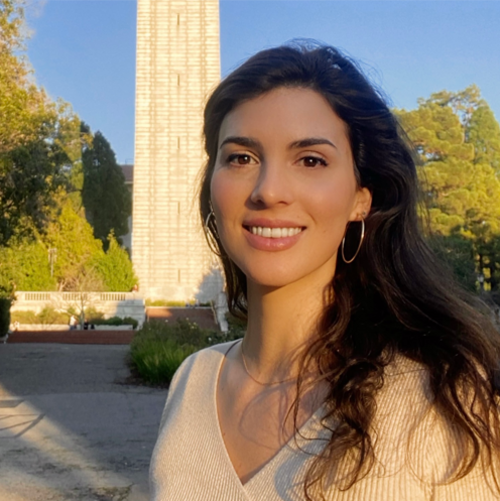
Celeste Castillo, MEng’ 22 (ME)
Advising 2022–23 Project: Thermpack, Contrast Therapy Device What is your capstone project as an advisor about? The student capstone project I am advising has the goal of building a contrast therapy device. I am currently working full-time on this project alongside the students’ capstone team. My motivation for this project comes from my passion for dance and movement. After a hamstring injury in 2019, I learned about contrast therapy, which is the alternating of heating and cooling on the skin (typically done with electric heating blankets and ice packs). It was an important part of my healing process but also very cumbersome to do at home. I realized there could be a better way, and as a student in 2021, my capstone team and I began the customer discovery and prototyping process for a contrast therapy device. I am grateful for the students who joined the team this following year and are providing such valuable help to continue this project. How has your experience as an alumni advisor been? I find it to be such a rewarding, collaborative endeavor. I learn so much from the students and feel motivated by their creativity and excitement for the project. Having graduated recently, it helps to be aware of the capstone experience from the student's perspective and use this experience to better support the students. I can assist with any concerns regarding classes, professors, and life at UC Berkeley and provide any necessary advice. Do you have any advice for your capstone team?“One of the best parts about the Berkeley MEng program is the community — take time to know and learn about your amazing peers!”Also, your last semester goes by fast. There’s a lot to do and it can be overwhelming. At the beginning of the semester, I recommend reflecting and setting one or two personal goals — take time to understand what is most valuable for you to take advantage of at Berkeley during these final months. Connect with Celeste.
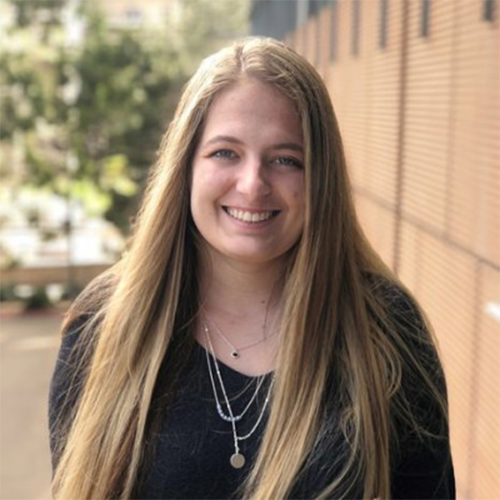
Janelle Lines, MEng’ 20 (EECS)
Advising 2022–23 Project: Neuralines Analytics What’s your background? I grew up in San Diego, California. I have always been interested in mathematics and science. I first heard about machine learning and artificial intelligence during my time as an undergraduate student at UC San Diego, where I was studying Bioengineering and Physics. After graduating from UCSD, I pursued a software engineering position with an emphasis on artificial intelligence applications at the company Instrumentation Laboratory. In 2019, I attended UC Berkeley to complete my Master of Engineering in Electrical Engineering and Computer Science (EECS). Upon graduation, I started a machine learning consulting company, Neuralines Analytics. Through this company, I lead machine learning projects for my clients and I also sponsor/advise UC Berkeley MEng capstone projects. How has your experience as an alumni advisor been? I find advising MEng capstone projects to be very rewarding. After going through the program myself and advising two projects from separate years, I feel that I know what to expect from the capstone process, and can adequately help the students with any of their concerns. I also find it exciting to watch how the projects evolve over the course of the year. By the time May comes around, the students have put significant work into their projects and it is thrilling to watch them present their results.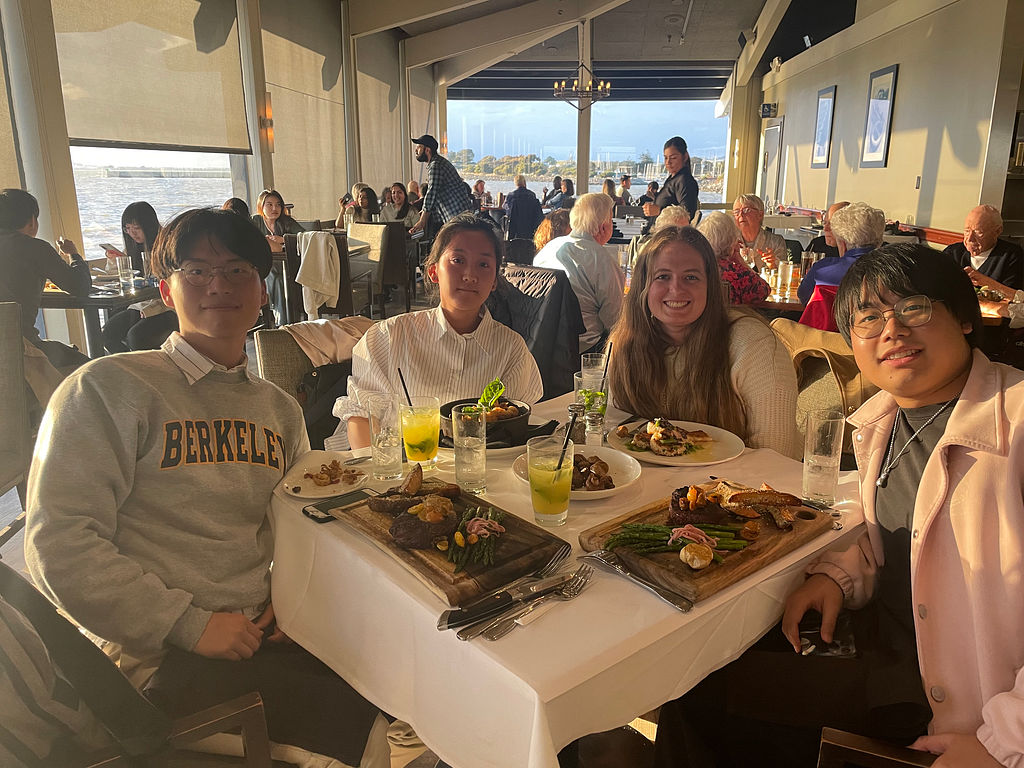
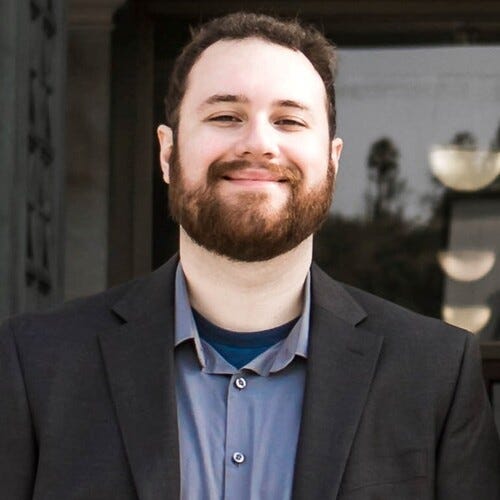
Scott Ziegler, MEng’ 22 (ME)
Advising 2022–23 Project: Space Kinetic What’s your background? I grew up in Michigan, and some of my earliest memories involve spending time with my dad in his machine shop. Growing up around that culture of innovation and iteration set me on my path toward engineering, and I studied mechanical engineering and math at Western Michigan University. In college, I received my first patent for developing a novel sensor system at Rolls-Royce Aerospace, and I started a 3D-printing company called Ziggtech. After finishing my undergraduate program, I worked for several years as a Design Engineer at Eaton. Working for a big company like Eaton was instrumental in my development as an engineer, but I always knew that I wanted to return to the entrepreneurial path. I initially conceived Space Kinetic’s core technology in April 2021 and took this idea to UC Berkeley’s MEng program later that year. During my graduate program, I helped direct a student-led capstone project to further develop the technology. Since I graduated in May 2022, I’ve led Space Kinetic’s development full-time. How has your experience as an alumni advisor been? In one word: rewarding! As someone who was right there less than a year ago, it has been incredible to see these MEng students immerse themselves in all the innovative, challenging problems that they’re working to solve. Watching these engineers apply lessons from the classroom to real-world technical problems really highlights the power of the program. What are you currently working on? During my time in the Berkeley MEng program, I co-founded Space Kinetic, an early-stage startup developing a new kind of space logistics technology. Since I graduated, we’ve expanded our team, refined our business model, and built commercial and institutional partnerships that will be invaluable as we continue to develop our technology. Over the past few months, we’ve added a former CFO of NASA to our advisory board, secured a two-year partnership with Los Alamos National Lab, and developed teaming agreements and joint proposals with a host of commercial players. I’m personally serving as Space Kinetic’s CEO, where I’m straddling the business and engineering worlds — and laser-focused on our product strategy. My co-founder and Space Kinetic’s Chief Strategy Officer, Ryan Sullivan, is a Berkeley Haas alum. What is your capstone project as an advisor about? Our capstone teams are designing containers for different kinds of payloads that will ultimately be transported through our in-space supply lines. Not only are they working on solving hard technical problems, but they are also interfacing with different commercial stakeholders in the value chain to reflect their priorities as they develop and refine their designs. Do you have any advice for your capstone team? Space Kinetic is fortunate to work so closely with two teams of motivated, intelligent, and curious engineers. As we enter the new year, I hope they continue to question the status quo and bring their original ideas and perspectives to our project! Connect with Scott.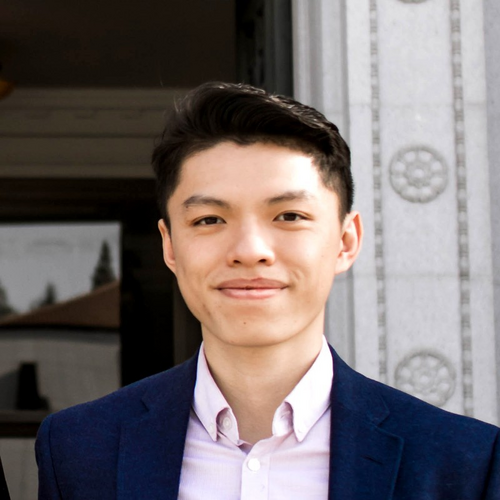
Vu Vuong, MEng’ 22 (ME)
Advising 2022–23 Project: Stealth Startup What’s your background? I was born in Vietnam and grew up in San Francisco, California. From a young age, I’ve had a knack for science and have been fascinated by many scientific feats that humanity has achieved in our short time on this planet. As I got older, I wanted to work on something that is tough and if solved, can push mankind to new heights. I co-founded Space Kinetic during my time at UC Berkeley and led its growth from a two-founder startup to a well-funded, well-recognized, and government-backed startup. I departed from Space Kinetic in August and currently, I’m building a new company to solve another exciting space challenge. How has your experience as an alumni advisor been? As a first-generation, low-income student, I’ve always been an advocate for educational & professional mentorships as they have helped guide me through challenging periods and open doors for opportunities. This has been a tremendously rewarding journey. I’m glad to be able to give back to my capstone team and also to learn and grow as an advisor. What are you currently working on? Right now, I’m building this Stealth Start-up to offer advanced robotic services for both frontier space and earth applications. What is your capstone project as an advisor about? We are developing a next generation lunar autonomous vehicle (aka a rover) to help our customers get access to and operate in regions of interest. The development of this rover addresses a set of scalability and capability challenges that will unlock a future where humans can sustainably live, work, and thrive in extreme environments. Do you have any advice for your capstone team? Put high emphasis on building real relationships and friendships. Stay hungry, stay open-minded, and don’t be afraid of pursuing something completely out of the ordinary. Connect with Vu. Edited by Mary TranMEng Capstone Alumni Advisors was originally published in Berkeley Master of Engineering on Medium, where people are continuing the conversation by highlighting and responding to this story.




